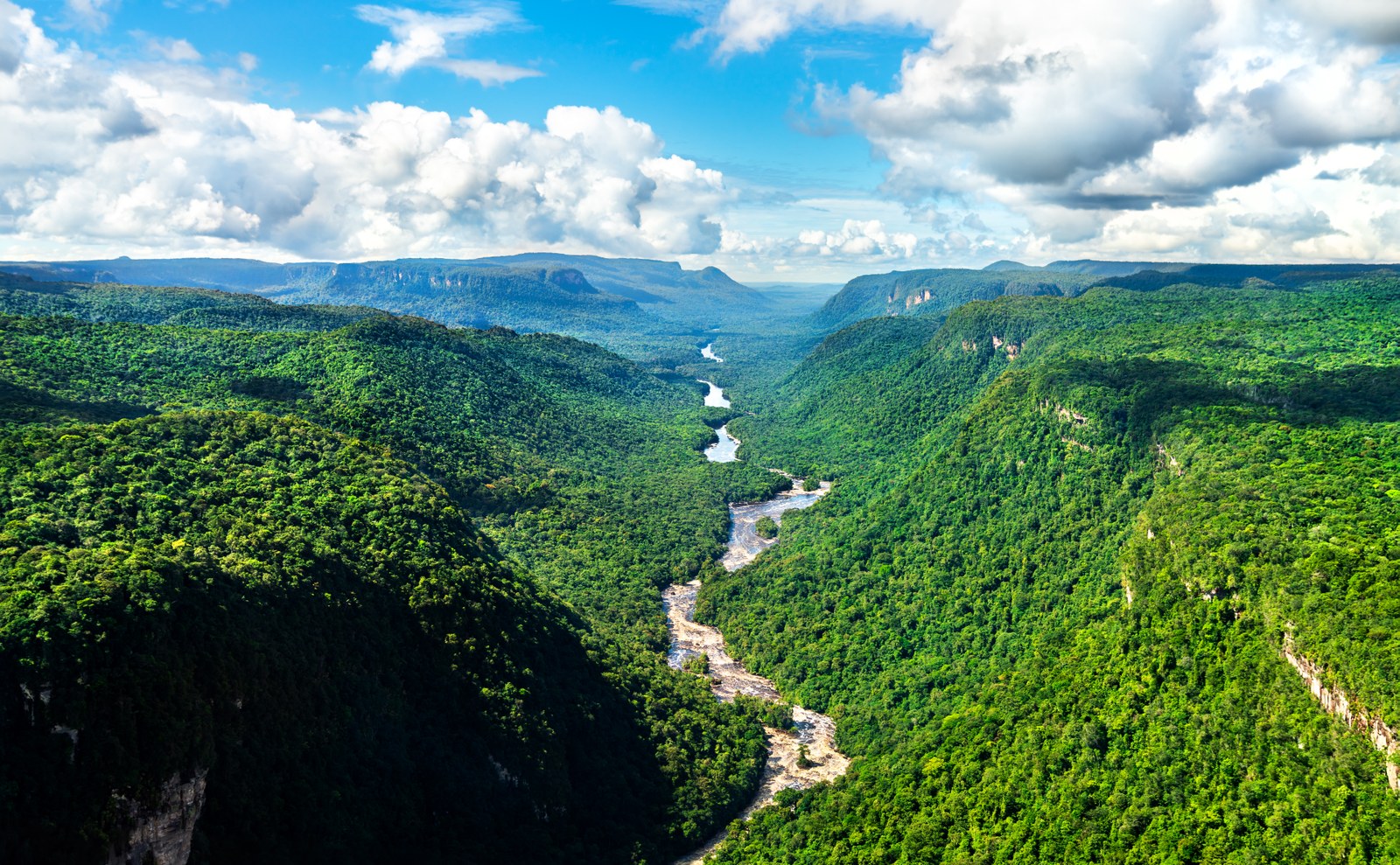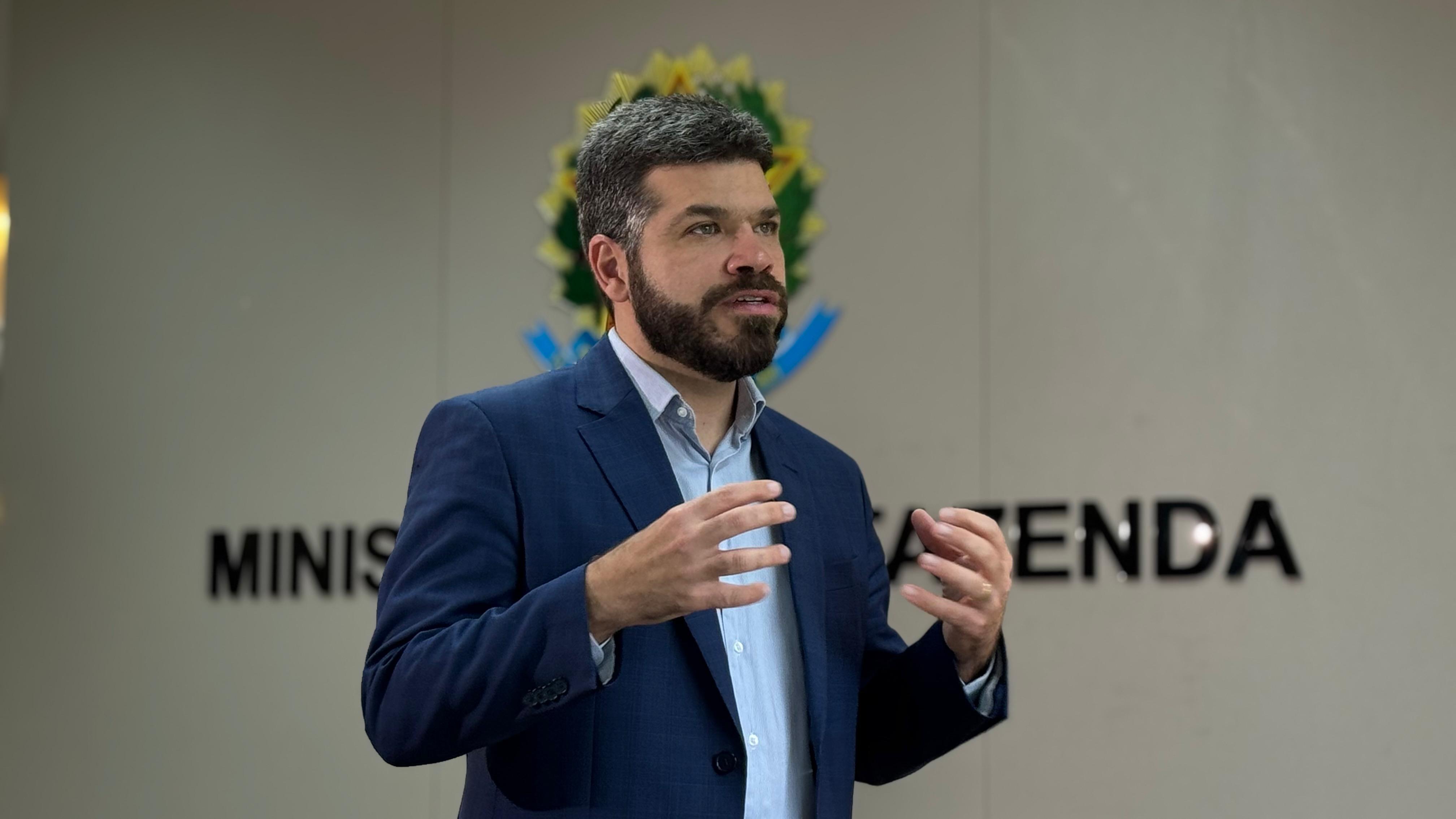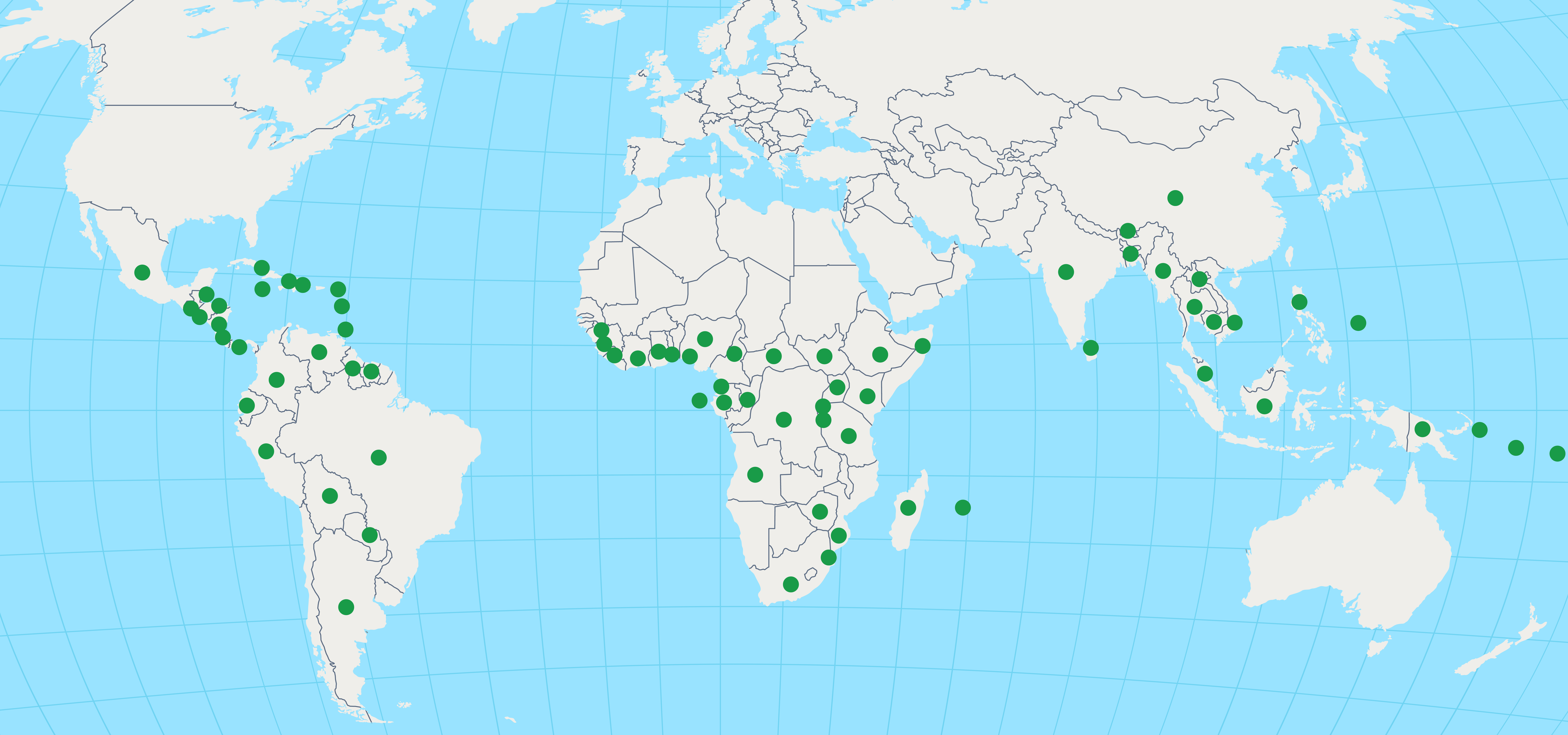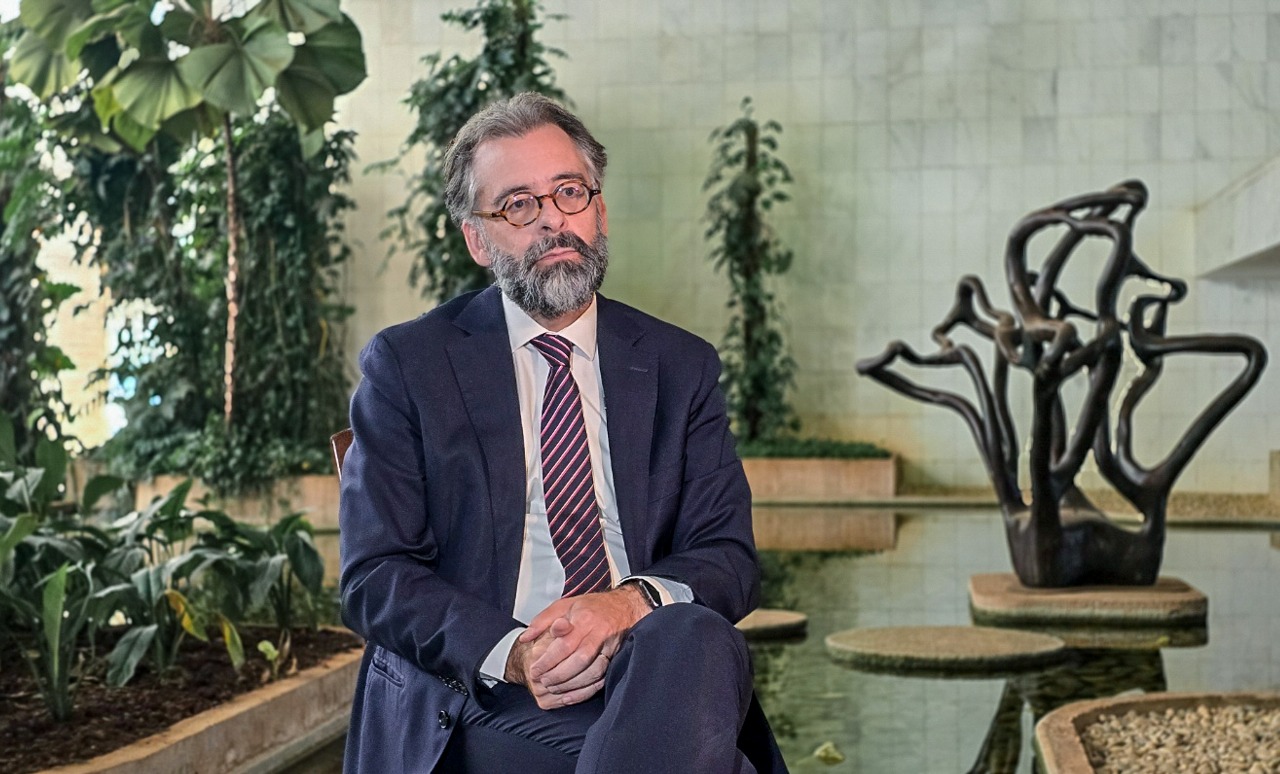Tropical Forests Forever Facility (TFFF) proposes innovative financing model for conservation
A Brazil-led proposal seeks to compensate countries for preserving tropical forests, with 20% of funds reserved for Indigenous peoples. The mechanism, set to launch at COP30, could become one of the world’s largest multilateral funds

By Laura Marques / COP30
Brazil is spearheading an initiative set to transform the world's approach to environmental conservation. The Tropical Forests Forever Fund (TFFF) is set to launch during COP30 and will provide funding to countries that commit to preserving these forests. More than 70 developing countries with tropical forests will be eligible to receive funds from what could be one of the largest multilateral funds ever created.
The valuation of environmental preservation through the TFFF stems from the understanding that ecosystems such as the Atlantic Forest, the Amazon, and the Congo and Mekong basins are essential to sustaining life, as we know it today.
Ms. Marina Silva, Brazil's Minister of the Environment and Climate Change, said that “now is the time to change the way humanity deals with the planet's natural resources”.
“We have already exploited nature too much to generate financial resources and material goods. Now it is time to use the resources we have generated from this exploitation to protect nature. We are constantly criticized for relying solely on public money for this protection, but the Rainforests Forever Fund represents a turning point,” she added.
“It is not a donation, but an initiative that operates according to market logic, leveraging private resources from public investments. For every dollar contributed by countries, it is expected to mobilize about four dollars from the private sector, creating a permanent trust fund. It is a new way of financing conservation, with shared responsibility and a vision for the future,” she added.

Mr. André Aquino, Special Advisor on Economy and Environment at the MMA, explains the role of biomes that may be covered by the TFFF. "We know that tropical forests are a source of climate stability because they retain carbon and ensure water cycles, such as the flying rivers in the Amazon that we know very well in Brazil today, for example. More than 80% of the world's terrestrial biodiversity is found in tropical forests. Therefore, they provide ecosystem services to humanity on a global level. What the TFFF seeks is for the world to remunerate part of these services. It is to remunerate forests as the basis of life, as the basis of the economy, for our well-being.”
Mr. Rafael Dubeux, Deputy Executive Secretary at the Finance Minister (Ministério da Fazenda/MF), emphasizes that the mechanism gives materiality to the value of forests. "For those who own an area, there is a kind of opportunity cost—to use an economic expression. They could, in theory—and it is not a good option—consider destroying that area to put cattle there, to plant crops. For those who own that area, the money, the value of that preserved forest, is not so visible. The TFFF is creating a solution so that we can make it clear that the idea that standing forests are worth more than felled ones is not just a slogan. We are going to truly monetize, enable, and pay for the service of preserving the forest," he emphasized.
According to Ambassador Mauricio Lyrio, Secretary for Climate, Energy and Environment at the Ministry of Foreign Affairs (Ministério das Relações Exteriores/ MRE), consolidating the TFFF at COP30 will strengthen multilateralism. “It is a source of pride that in Brazil, in Belém—in the heart of the Amazon forest—our country is launching an initiative born from the Global South, from Brazil’s coordination with other developing countries with tropical forests. It carries historic significance,” he said.
Origins
Brazil is leading efforts to create the TFFF since COP28, held in Dubai in 2023, when President Luiz Inácio Lula da Silva first publicly addressed the topic.
So far, five other tropical forest nations have joined: Colombia, Ghana, the Democratic Republic of Congo, Indonesia, and Malaysia. In addition, five potential investor countries are helping shape the mechanism: Germany, the United Arab Emirates, France, Norway, and the United Kingdom.
Resources and Attractiveness
The expectation is that investor nations will provide an initial contribution of USD 25 billion. With this injection, it should be possible to leverage an additional USD 100 billion (senior capital) from the private sector over the next few years. By accepting the role of junior capital, governments agree to take on a slightly higher risk than the private sector, thereby attracting these private investors.
Projections indicate that the mechanism should generate USD 4 billion annually for environmental preservation, which is nearly triple the amount invested globally in the protection of tropical forests through concessional resources.
Innovatively, the resources made available by the TFFF will be transferred to countries with tropical forests, which will have a predictable and large-scale source of resources to finance long-term objectives. The TFFF expects that payments to countries will be additional to the budget resources currently used for forest conservation, which are extremely limited.
“This would provide a very strong capacity for investment in public policies," stressed André Aquino.

According to Rafael Dubeux, the fund will change the way capital is invested in favor of the environment.
“Unlike previous experiences, which are largely based on donations and philanthropy, the TFFF brings innovation because it puts less pressure on everyone's budget, since it is an investment,” he said.
It is a trust fund, similar to the “endowments” that support large private universities in the United States.
According to Mr. Dubeux, if forecasts are accurate, this will be one of the largest multilateral funds ever created on the planet, second only to the World Bank.
See where the 74 nations with eligible forests are located:

Functioning
Tropical forest countries joining the TFFF will be required to submit annual reports to the fund’s board proving forest conservation, monitored by satellite. Brazil already conducts this monitoring through its National Institute for Space Research (Instituto Nacional de Pesquisas Espaciais/INPE), and could serve as an example for other nations, according to the MMA.
The figures sent to nations with forests are based on a calculation of USD 4 per hectare preserved. Transfers may be cut or discounted depending on the measured level of deforestation and forest degradation.
Beneficiary countries will have autonomy to define the final destination of the funds. In Brazil, the MMA projects that the funds could strengthen a series of environmental preservation measures, such as the Bolsa Verde Program, the National Policy for Payment for Environmental Services, and actions to encourage the bioeconomy.
“The TFFF supports countries that already have low deforestation rates by increasing resources for their conservation, sustainable use, and restoration programs and policies,” says Mr. Garo Batmanian, director general of the Brazilian Forest Service.
Although it guarantees freedom in the application of resources, the TFFF has eligibility rules. Countries must have transparent financial management systems and agree to set aside 20% of the resources specifically for indigenous peoples and traditional communities.
As for investments made by the fund to remunerate countries, investment in projects involving fossil fuels is prohibited. The priority is to opt for actions and securities from governments and companies in emerging countries and products considered green.
International Engagement

The TFFF will be one of President Luiz Inácio Lula da Silva's main defenses at the 80th General Assembly of the United Nations (UN), to be held this week in New York. According to Itamaraty, Brazil will host an event to discuss the proposal with world leaders.
“We are working to ensure that countries strongly signal their commitment to contributing resources starting at COP30,” emphasized Minister Marina Silva.
Ambassador Mauricio Lyrio pointed out that the forest fund is a demonstration that multilateralism is capable of delivering concrete and innovative results at a time when international cooperation is being questioned in some parts of the world.
“It is not something that is imposed from North to South, as we call it. This is very important to reinforce multilateralism in the area of climate. It is a sign of vitality,” said the COP30 president.
Beyond the committee members building the fund, the initiative has already received positive signals from other countries, including BRICS leaders and Amazon nations. In September, China endorsed Brazil’s proposal for the TFFF, saying it looked forward to the positive impact it could have on a healthier planet.
According to the MRE, Brazil has been engaging countries worldwide through its embassies abroad and with foreign embassies in Brasília.
Indigenous Peoples and Local Communities

One of the TFFF’s rules is that 20% of the funds transferred to each forest nation must go to Indigenous peoples and local communities. The method of distribution will be defined by national governments in consultation with these groups, ensuring national sovereignty.
“Indigenous peoples are the greatest guardians of the forest and biodiversity. This has been proven in many ways. And we have always done it without any resources. Having these funds will guarantee Indigenous autonomy and the structure needed to implement projects and initiatives directly in the territories,” said Sonia Guajajara, Brazil’s Minister of Indigenous Peoples.
A 2021 report by the U.N. Food and Agriculture Organization (FAO) and the Fund for the Development of Indigenous Peoples of Latin America and the Caribbean (FILAC) confirms her statement, showing that lands managed by Indigenous and traditional peoples suffer less deforestation and emit less carbon. In Brazil, deforestation in Indigenous territories is 2.5 times lower than in other areas.
According to the minister, the government is also maintaining dialogue with indigenous peoples from other countries to make the TFFF viable, through discussions with the Global Alliance of Territorial Communities (AGCT). The organization represents 35 million people living in forest territories in 24 countries in Asia, Africa, and Latin America.
Resource Mobilization
The decision to host COP30 in the heart of the Amazon was inspired in part by the need to show the world the importance of tropical forests to sustaining life on the planet.
One of the main topics discussed on the climate change agenda is the mobilization of resources to support developing countries in implementing mitigation and adaptation actions. At COP29 in Baku, a target was set to raise USD 1.3 trillion for climate finance by the conference, according to the Baku to Belém Roadmap. André Aquino considered that, although not yet part of this initiative, the fund has the potential to be included.
“The TFFF is not formally an instrument of the UNFCCC, but it contributes directly to the goals of reducing emissions through forest conservation, preservation, and biodiversity conservation, among others. Thus, its resources could be accounted for in the mobilization that we are trying to do. However, this is still under evaluation,” he pointed out.
According to the Deputy Executive Secretary of Finance, one of the advantages of the TFFF over other measures discussed at COP30 is that, to become operational, the fund does not need the agreement of all 196 countries attending the event, but can be made viable solely based on the initial contribution from investor nations and the work of forest countries.
The same principle applies to the proposed global coalition of carbon credit markets.
Carbon Market and TFFF
Alongside the TFFF, one of the Ministry of Finance’s main proposals for COP30 is creating a coalition of carbon credit markets. While this mechanism would compensate actors that capture greenhouse gases—such as through reforestation—the TFFF would pay sovereign states for keeping forests intact, creating complementarity.
The idea is for coalition members to establish a global emissions cap that would be gradually reduced. Brazil has already approved legislation regulating this market domestically, which is now in the implementation phase.
More information about the structure of the Tropical Forests Forever Facility can be found here. All figures in this report and on the official site are estimates still under negotiation among participating countries.
English version: Trad. Bárbara Menezes.
Proofreading by Enrique Villamil.
